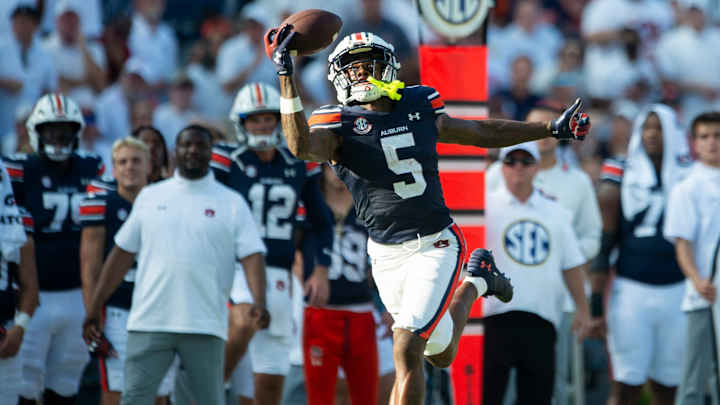
Derrick Henry is one of the most dominant running backs in the NFL, known for his bruising style of running and game-breaking ability.
Over the years, he has built a reputation for carrying his team on his back, literally and figuratively, with eye-popping performances.
So, when he’s only given 16 carries in a game, especially one where his team may be struggling or needing to balance the offense, it’s fair to wonder why he didn’t get more of a workload.
Additionally, his two 2-point conversions—while commendable—are a curious focus. Let’s break down why this specific stat line might not have raised as much attention as one might expect, and what it means in the larger context of the team’s performance and overall strategy.
First, let’s acknowledge that Henry’s 16 carries and two 2-point conversions don’t sound like a terrible game on paper. In fact, for many running backs, 16 carries would be a solid outing, especially against tough defenses.

However, given Derrick Henry’s size, talent, and role on the Tennessee Titans, many fans and analysts expect more. When Henry gets fewer touches than usual, it may indicate something deeper at play.
One possible explanation for the relatively low number of carries could be game script.
If the Titans fell behind early or were in a situation where they had to pass more often, Henry’s involvement in the game might have been reduced in favor of a faster-paced passing attack.
Football is about adapting to the flow of the game, and when you’re playing from behind, the clock is running, and passing tends to take priority over running, especially with a workhorse back like Henry.
Furthermore, the two 2-point conversions are interesting but not necessarily a sign of a massive impact.
A 2-point conversion is a high-leverage play, but it’s also a small sample of a player’s performance. In this instance, Henry was likely called upon in short-yardage situations, where his physicality makes him a great option.
However, these plays don’t directly correlate with his primary role as a ball-carrier in the offense. Conversions are important, but they aren’t always a reflection of a player’s dominance over the course of a game.
There’s also a broader point to be made about the changing nature of the NFL offense.
More teams are moving toward a balanced or pass-heavy attack, often using their star running backs in a more measured way to preserve them for the long haul of a season.
Derrick Henry’s workload over the years has been massive, and there’s always the potential for the Titans to lean on him more heavily as the season progresses.
But teams are becoming increasingly cautious about running backs who have been given heavy workloads early in their careers—Henry included—so they don’t risk wearing him down.
Coaches and front offices might also understand the need for load management, especially with the Titans’ offense, which has leaned on Henry’s back to drive success for seasons.
Finally, the lack of outrage over Henry’s performance in this game likely speaks to an understanding that in today’s NFL, efficiency and game context matter just as much as raw statistics.
Fans and analysts are increasingly aware that one player’s stat line doesn’t always tell the full story of a game, and game flow, play-calling, and other factors play a huge role in how a game unfolds.
In conclusion, Derrick Henry’s 16 carries and two 2-point conversions may not have been earth-shattering, but they don’t necessarily signify a problem either.
Football is a team game, and in a larger context, Henry’s contribution might have been a part of a broader strategy designed to win the game.
As the NFL evolves, so too does the way fans and analysts evaluate player performances, and sometimes the biggest takeaway is not always in the numbers.
HC Mike Norvell Begins a huge Renovation Project to cement status and replacement Sum $4.5 Million…Read More
In a bold move to elevate the status of Florida State University’s football program, Head Coach Mike Norvell has embarked on a transformative $20 million renovation project aimed at reinforcing…
BYU QB Coordinator Aaron Roderick Shocked the Entire BYU Football Community today with a heartbreaking Declaration to Leave….
In a shocking turn of events that has left the entire BYU football community in disbelief, Aaron Roderick, the team’s Quarterback Coordinator, announced his decision to leave the program. Roderick’s…






